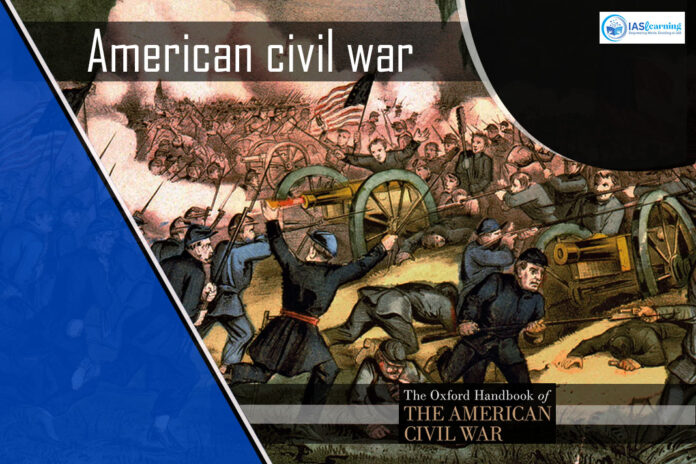Table of Contents
American Revolution
The American Revolution, spanning from 1765 to 1783, was a transformative period in colonial North America, marked by ideological and political upheaval. The epicenter of change was the American Revolutionary War (1775–1783), where the Thirteen Colonies revolted against British rule. This historic conflict culminated in the birth of the United States of America, establishing the nation as the first contemporary constitutional liberal democracy.
Initiated as a response to levies imposed by the British Crown and Parliament without colonial representation, the revolutionary spirit spread across 13 of Britain’s North American colonies. The ensuing struggle for independence became a complex political and military conflict that shaped the destiny of the emerging nation.
Causes of the American Revolution

- Political Causes:
- Lack of Representation: The American colonists were not represented in the British Parliament, despite being subject to its taxation and laws. The cry of “No Taxation without Representation” reflected the colonists’ belief that they should have a say in the laws that affected them.
- Harsh Penalties: The aftermath of the Seven Years’ War led Britain to impose harsh penalties on the colonies to recover its resources, particularly affecting the economically significant colonies in North America.
- Resistance to Taxes: The imposition of taxes, such as the Stamp Act, without colonial representation in the decision-making process, led to widespread resistance and protests. The Boston Tea Party is an example of such resistance.
- Economic Causes:
- Restrictive Trade Policies: English policies hindered the economic growth of the colonies, limiting their ability to engage in international trade and imposing restrictions on the types of products that could be shipped to England.
- Prohibitions on Industries: The colonies were restricted from developing certain industries like iron, steel, and textiles, and were compelled to import goods from England.
- Land Restrictions: English nobles, who owned a significant portion of land in North America, restricted colonists from purchasing land in the west, aiming to keep them as tenants.
- Ideological Causes:
- Influence of Enlightenment Thinkers: Enlightenment thinkers such as Locke, Harrington, and Milton influenced the colonists, emphasizing the unalienable rights of individuals. This contrasted with what they perceived as repressive British authority.
- Intellectual Resistance: Intellectuals like Thomas Paine and Thomas Jefferson spoke out against the inequalities of British society and championed the idea of the freedom to resist. They questioned the legitimacy of an island (Britain) ruling over a vast continent.

Key Events
Townshend Acts (1767):
- Four separate acts were approved by the British Parliament.
- Taxes were levied on goods, including paper, glass, and paint, in the American colonies.
- Named after Charles Townshend, a British politician supported by British Americans.
Stamp Act of 1765:
- Direct tax imposed on the British American colonies by the British Parliament.
- Taxes assessed on legal documents, ship papers, licenses, publications, and playing cards.
- Met with widespread protests and resistance in the colonies.
Tea Act of 1773:
- Law enacted by the British Parliament requiring American businesses to pay British tea taxes.
- Contributed to the Boston Tea Party as colonists protested taxation without representation.
Boston Tea Party (1773):
- Occurred in 1773 when American nationalists, disguised as Mohawk Indians, threw 342 trunks of British East India Company tea into Boston Harbor.
- A protest against British taxation policies and lack of colonial representation.
Boston Massacre (March 5, 1770):
- Also known as the “Incident on King Street.”
- Five Americans were killed during a confrontation with British soldiers who were enforcing taxes and maintaining order.
- Contributed to growing tensions between the colonies and British authorities.
Whigs:
- Another term for nationalists who fought for independence from British authority.
- Represented those who supported the American Revolution and the desire for self-governance.
Timeline

- First Continental Congress (1774):
- Representatives from the 13 colonies gathered in Philadelphia.
- Requested fair treatment from the British king.
- The king disregarded their requests, labeling their activities as mutiny.
- Outbreak of War (1775):
- Colonial militias and British soldiers engaged in combat in 1775.
- This marked the beginning of the Revolutionary War.
- Second Continental Congress (1776):
- Reconvened in 1776.
- On July 4, the Congress proclaimed independence.
- The Declaration of Independence was adopted, asserting the unalienable rights of men, which were later expanded upon in the Bill of Rights.
- Democratic Principles:
- The idea that authority comes from the people emerged.
- This laid the foundation for the creation of the first democratic state with a written constitution.
- International Support:
- The French provided assistance to the American colonists in their fight against Britain.
- Other adversaries of Britain, including Spain and Holland, also engaged in combat against the British in various parts of the continent.
- Conclusion of the War (1781-1783):
- The war concluded with the surrender of Lord Cornwallis to George Washington in 1781.
- The Treaty of Paris, signed in 1783, officially ended the war between England and the USA.
Significance of American Revolution

- Establishment of a Republic and First Written Constitution:
- The American Revolution resulted in the establishment of a republic, marking a departure from monarchical rule.
- The United States adopted the first written constitution in history, emphasizing the principles of democracy and self-governance.
- Influence on Global Movements:
- The establishment of a republic in the United States served as a powerful inspiration for people around the world.
- It motivated individuals in other nations to fight for democratic and republican forms of government, challenging the prevailing dominance of monarchies.
- Model for Power-Sharing:
- The federal structure of the United States, with equal authority between the central government and states, provided a model for power-sharing.
- This model became influential in many nations seeking to develop intricate political systems that balanced central and regional authority.
- Protection of Unalienable Rights:
- The Declaration of Independence asserted the existence of unalienable rights for individuals.
- These rights placed restrictions on the government’s ability to challenge popular authority and interfere in people’s daily lives, laying the groundwork for the protection of individual freedoms.
- Impact on the Democratic Movement:
- While the democracy established in the aftermath of the revolution was not perfect, it marked the beginning of the road to democracy.
- Subsequent struggles and upheavals, including the fight for expanded voting rights, continued to shape the evolution of American democracy.
- Global Influence on Revolutions:
- The ideals of the American Revolution had a significant impact on other revolutions, with many of the war’s generals and philosophers playing roles in movements like the French Revolution.
- Thomas Paine and other thinkers propagated contemporary concepts that influenced political thought and movements throughout Europe.
Impact of American Revolution
- Model for Toppling Repressive Systems:
- The American Revolution provided a model for how contemporary ideas could lead to the overthrow of repressive systems.
- The success of the revolution demonstrated the potency of liberal democratic and populist liberation ideologies in challenging and replacing established orders.
- Global Influence and Success of Democratic Ideals:
- The subsequent success of the United States on the international stage served as evidence of the effectiveness of liberal democratic and populist liberation ideologies.
- After World War II, many nations in Europe and beyond successfully emulated the American model, adopting democratic principles in the formation of their governments.
- International Impact, Including on India:
- Nations, including India, learned from the American experience and incorporated democratic values into their own systems.
- The influence of the American Revolution is cited as an inspiration for movements seeking independence and democratic governance in various parts of the world.
- Impact on the American Civil War:
- The American Civil War, fought primarily over the issue of slavery and the secession of the Southern states from the Union, was influenced by the principles established in the American Revolution.
- President Abraham Lincoln’s famous “Gettysburg Address” emphasized the idea that government should be “of the people, by the people, for the people,” reinforcing the democratic ideals rooted in the American Revolution.
- Legacy in Shaping Modern World History:
- The historical impact of the American Revolution extends beyond its immediate aftermath, shaping the course of modern world history.
- The ideas and principles established during this period continue to influence political thought and movements globally.
Conclusion
The American Revolution stands as a transformative chapter in history, marking the birth of a new nation and igniting a beacon of inspiration for democratic movements around the world. From the initial clash in Lexington to the pivotal Battle of Yorktown, the conflict embodied the struggle for independence and self-governance against oppressive rule. George Washington’s leadership, the decisive support from Lafayette and the French forces, and the collective determination of the American colonies reshaped the political landscape.
The Revolution’s impact extended beyond the battlefield, shaping the ideals that would form the foundation of the United States. The principles of democracy, individual rights, and the concept that government derives its authority from the consent of the governed became ingrained in the nation’s ethos. The Treaty of Paris in 1783 formalized the end of hostilities, but the ideas born from the revolutionary fervor continued to reverberate globally.
The American Revolution served as a catalyst for change, influencing subsequent movements for independence and democracy in various corners of the world. Its legacy persists in the enduring principles enshrined in the U.S. Constitution and the democratic institutions that have evolved over centuries. As a testament to the resilience of human spirit and the pursuit of freedom, the American Revolution remains a pivotal moment that echoes through the corridors of history, inspiring generations to come.

